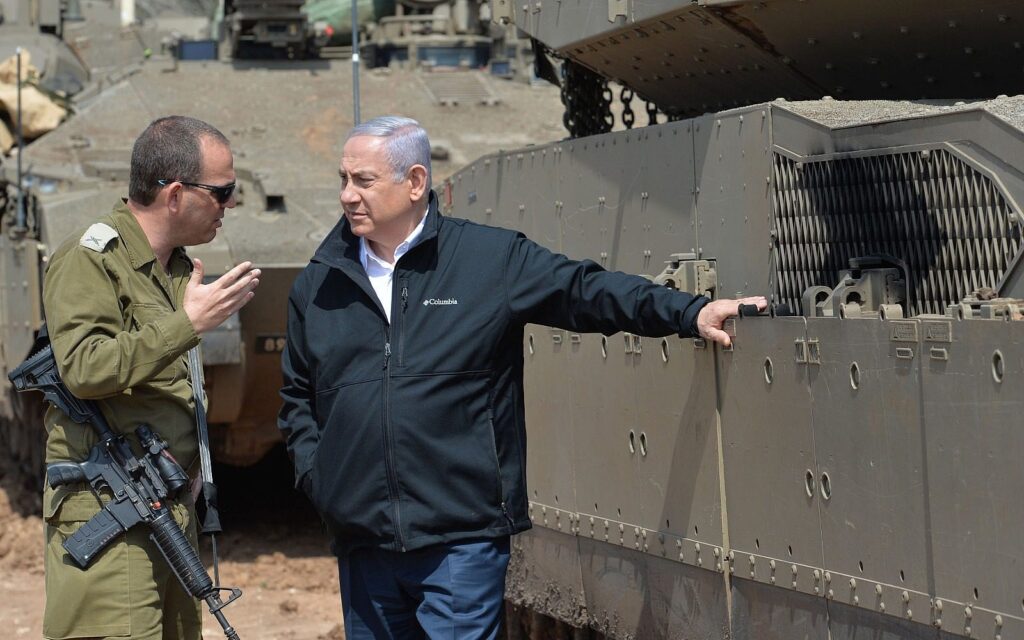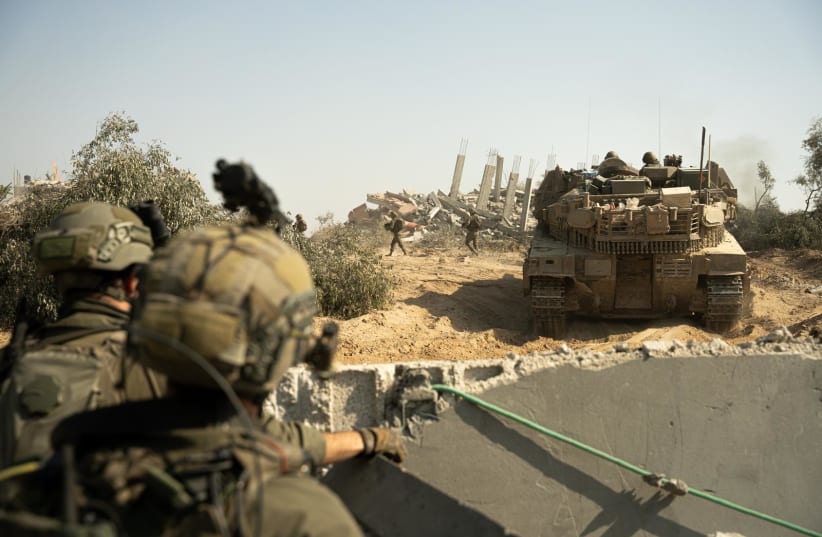Israeli Prime Minister Benjamin Netanyahu has announced that the current phase of military operations against Hamas in Gaza is nearing its conclusion, potentially setting the stage for a new conflict with Hezbollah in Lebanon. In a televised interview on Israel’s Channel 14, Netanyahu outlined his vision for the next stages of Israel’s military strategy, highlighting the complex geopolitical challenges facing the region.

Netanyahu stated that while the Israeli army is close to completing its ground offensive in the southern Gaza city of Rafah, this does not signal an end to the war against Hamas. He emphasized that fewer troops would be needed in Gaza, allowing for a redeployment of forces to the northern border to confront Hezbollah. “We will have the possibility of transferring some of our forces north, and we will do that,” Netanyahu said, adding that this move would be “first and foremost, for defense” and to allow displaced Israelis to return home.
The potential escalation with Hezbollah comes amid increasing tensions along Israel’s northern border. The Iranian-backed militant group has been exchanging fire with Israel since the outbreak of the Gaza conflict following Hamas’ October 7 attack. Netanyahu acknowledged the diplomatic efforts to ease tensions, including recent visits by White House envoy Amos Hochstein, but warned that Israel is prepared to “solve the problem in a different way” if necessary.
Regarding the ongoing situation in Gaza, Netanyahu ruled out any immediate end to the war, insisting that Israel’s objectives of releasing all hostages held by Hamas and destroying the group’s military and governing capabilities must be met. He outlined a vision for post-war Gaza that includes maintaining Israeli military control over the territory while seeking to establish a Palestinian “civilian administration” to manage day-to-day affairs, potentially with backing from moderate Arab countries.
The Prime Minister’s comments come as Defense Minister Yoav Gallant meets with American officials in Washington to discuss the war and tensions with Lebanon. Netanyahu himself is scheduled to address the U.S. Congress next month, a visit that has already sparked controversy among some American lawmakers.

Netanyahu also addressed the reported tensions with the United States over arms shipments, reiterating his claim of a “dramatic drop” in deliveries. This assertion has been contested by the Biden administration, highlighting the ongoing diplomatic challenges between the two allies.
As Israel potentially pivots towards a new phase in its regional military strategy, the international community remains concerned about the humanitarian crisis in Gaza and the potential for further escalation in Lebanon. Netanyahu’s statements underscore the complex and volatile nature of the Middle East’s geopolitical landscape, with implications that extend far beyond Israel’s borders.
The coming weeks and months will likely be crucial in determining whether the region moves towards de-escalation or faces the prospect of a wider conflict involving multiple fronts and actors. As Israel balances its security concerns with international pressure for a resolution to the Gaza conflict, the world watches closely for signs of either progress towards peace or the outbreak of a potentially catastrophic regional war.



